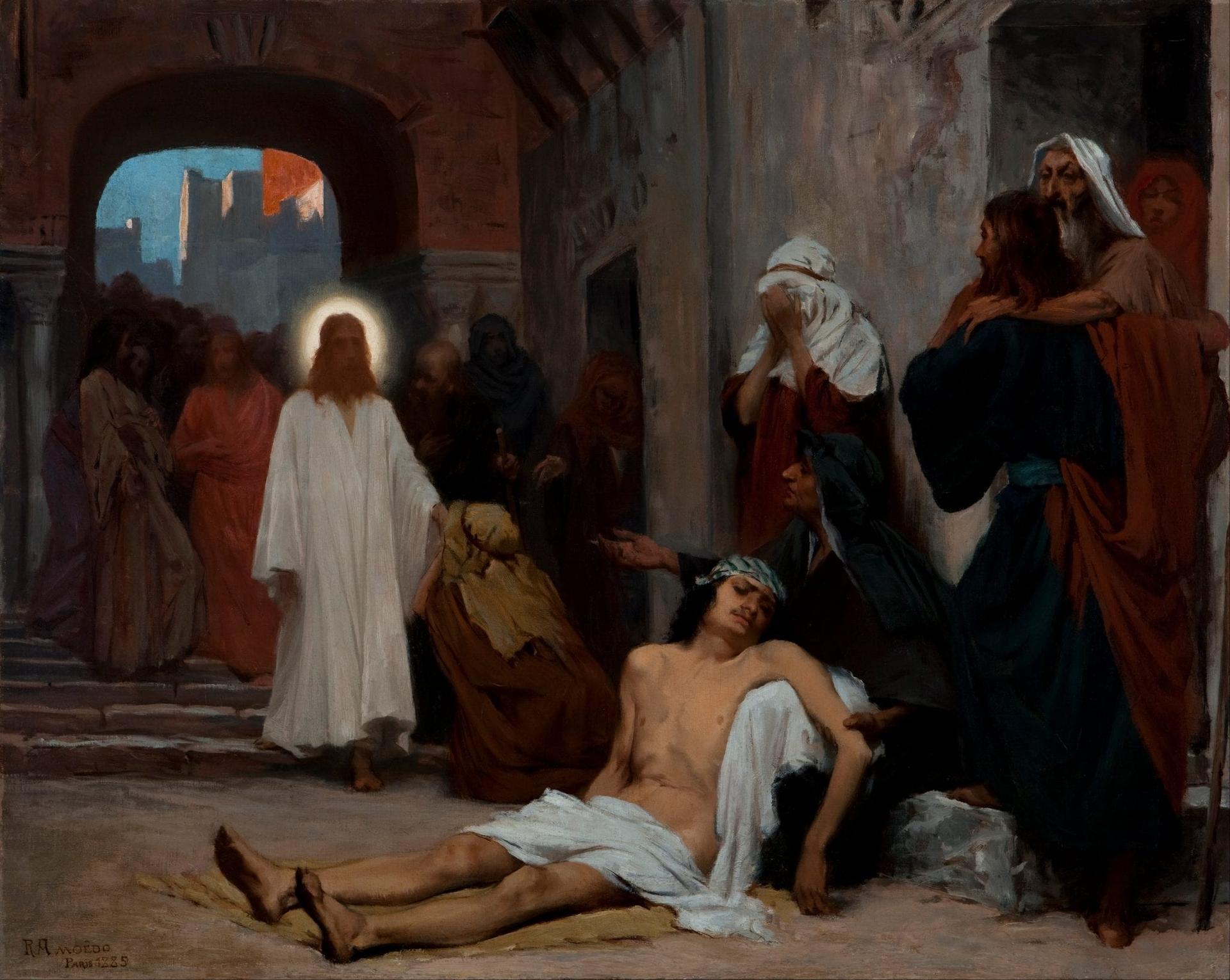In any religious tradition that’s based on claims of God revealing himself to humanity, it’s easy for believers to think that they know exactly how God works, where he manifests himself, and to whom he discloses his truths.
In contrast, the Christian tradition is grounded in assertions of divine revelation, but such revelation is internally marked by safeguards against pride by indicating that even within the revelation itself God moves in unexpected ways, appears in surprising places, and unveils himself to the least likely of people.
Case in point. This weekend, the Gospel reading at Mass takes us to the synagogue in Nazareth. As the scene develops, we’re told that Jesus has already been baptized, visited a few towns on his way back home, and has now arrived in his hometown.
These are his people, the very ones he would have grown up with, worked with, traded with, laughed and cried with. These were his extended family members and close friends. We can only imagine the joy and nervousness of the Lord’s human nature as he anticipated making this very synagogue visit.
We would expect that the people closest to Jesus would have sensed something majestic about him, as in the popular expression, “I always knew there was something special about that guy.” Or, in the very least, would have known his integrity and virtue and would have trusted him, as in something like, “This is a lot to take in, but I’ve always known him to be a righteous man.”
Instead, we see a completely different state of affairs. The town completely rejects him and attempts to kill him. This leads the Lord to utter that infamous wisdom: “Amen, I say to you,
no prophet is accepted in his own native place.”
What would cause Nazareth to turn against Jesus? What could he have possibly said or done to bring out such a reaction from those dearest to him?
The Lord went to the synagogue, “as was his custom,” and was handed the scroll of the Prophet Isaiah. The passage was from Isaiah 61, a clearly recognized messianic text. It would have been readily known by the worshipers in Nazareth as a passage awaiting fulfillment by the long-promised Anointed One of God. Jesus proclaims the passage and then announces, “Today this Scripture passage is fulfilled in your hearing.”
Wait? What did he just say?
The initial response was one of euphoria. The people “spoke highly of him” and were “amazed at the gracious words that came forth from his mouth.” The exhilaration that followed the announcement that Jesus would fulfill the ancient prophecies came at a high price. The original listeners didn’t allow for the full message to be received. They heard fulfillment of Isaiah 61 and that meant miracles! The account references other miracles in other cities and so the local folks must have heard something about Jesus’ power.
And so, when the ancient prophecies were declared fulfillment, they thought the getting was supposed to get good and they demanded healings, signs, and wonders.
But, surprise, the Lord took them to the heart of the prophecy! He refused to become a mere circus clown in his hometown. He wasn’t going to rely on the spectacular to make his point. In contrast to the overwhelming glee of the moment, therefore, the Lord continued his sermon. He spoke of the Widow of Zarephath and the Syrian general Naaman. Jesus praised them and extolled how blessed they had been by the living God of Israel. The reaction was extreme. The euphoria quickly turned to fury. Why?
Once again, surprise! The Lord Jesus took Isaiah 61 and placed it within its full prophetic context. This context was marked by the unsettling promise that one day the gentile nations would share in the glories of Israel. The prophets foretold a day when the distinction between Jew and Gentile would be abolished and all God’s people would be invited to receive his abundant blessings.
In his sermon, Jesus reminded the people of this oracle. It was an oracle they would have known, even if it was ignored or misunderstood by them. Regardless, when Jesus spoke of the Widow and of Naaman, he made his point. How? The point was made because both the revered Widow of Zarephath and the esteemed Naaman were both gentiles. And so, surprise! Jesus announces the universal fulfillment of the prophecies by praising these early Gentile recipients of God’s blessings.
This surprise was too much for the people of Nazareth, and so they rejected Jesus. The passage tells us that Jesus was told that he “passed through the midst of them and went away.” We know that he went to Capernaum, and the port city became his new home and the center of his public ministry in Galilee.
The lesson for each of us from such a tale of twists and turns is that Jesus of Nazareth, and the message he has shared with the human family, is always full of surprises. The arrogant and proud will always feel uncomfortable, but the humble and adventurous will always feel right at home with the Gospel.
Our invitation from Jesus, therefore, is to abandon control, dispense from worldly expectation, live freely, and enjoy the ride.












